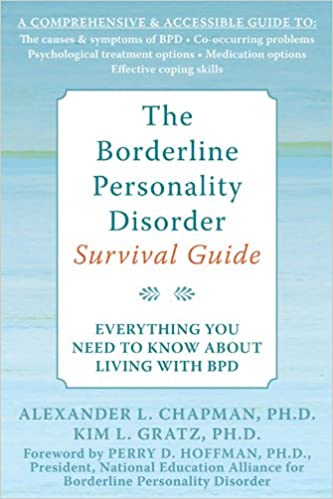
Image by Gerd Altmann from Pixabay
What is a personality disorder?
To know that, we need to first understand what a personality is.
Do we know ourselves better than the people who know us?
The word personality originally comes from the Latin word ‘persona’ originally representing the theatrical mask (a form of disguise) used by ancient dramatic players during performances. Persona suggests pretense of appearance, to create an impression of someone else. It suggests representing the traits of someone else other than the individual behind the mask.
A personality is not a mood, character, or temperament, and it is difficult to define.
But if you have to put it in words, then you can say it refers to a person’s deeply embedded distinctive patterns of thinking, feeling, and behaving that influence mood, attitude, thought, motivation, and emotion that are expressed automatically in any interaction with other people.
When the personality turns stubborn and has lost the ability to change or adapt naturally to any challenge or circumstance, deviates from the normal, and no longer conforms to the social and cultural expectations, then we say it is disordered.
Although personality can gradually change and evolve due to the biological and environmental factors, one’s core personality traits that are present from your childhood and early teens continue to remain relatively same even in adulthood. According to some studies done in the UK, it was suggested that at least 1 in 20 people might have a personality disorder. Personality disorders go undiagnosed in many patients.
Types of Personality Disorders
According to the American Psychiatric Association (APA), there are ten types of personality disorders. These are grouped into three clusters.
Cluster A: Suspicious
Paranoid Personality Disorder
It is an eccentric personality disorder and is characterized by suspicion and mistrust of others without adequate reason. With this personality disorder, you tend to think that everyone you know hates you and is out to get you making you overtly suspicious and hypervigilant. This disorder is more common in men and begins in childhood. There are many famous people who were suspected to have a paranoid personality disorder. They include Richard Nixon, Hitler, and Josef Stalin.
Schizoid Personality Disorder
A person with this disorder is usually detached and displays a lack of interest in social relationships, sex, or any human attachments and expresses little emotion. A person with schizoid personality disorder typically is unfriendly and does not seek close relationships, chooses to live a solitary life, and is least bothered by praise or criticism from others. The disorder develops during early adulthood and like other disorders gradually turns into a long-standing pattern of social detachment. Fear of intimacy and disinterest in the opposite gender is common. Famous people who were suspected to have had Schizoid Personality Disorder are Albert Einstein, Stephen Hawking, Karl Marx, and Isaac Asimov.
Schizotypal Personality Disorder
A person with this disorder displays a pattern of being very uncomfortable in close relationships, exhibits strange speech and bizarre behavior, paranoia, distorted thinking, and overall eccentric behavior. A person with a schizotypal personality disorder may have illogical thinking and odd beliefs. This disorder begins early in adulthood and continues throughout life. Famous people who had Schizotypal personality disorder are Emily Dickinson and Vincent Van Gogh
Antisocial Personality Disorder
A person with this disorder shows absolute disregard for others, is intimidating, has no consideration for the rights of others, and shows a lack of remorse. A person with an antisocial personality disorder may not conform to social norms. The person can be violent, may repeatedly lie or deceive others, and participate in unlawful activities. The person is selfish and will not show any signs of shame or guilt when they hurt others. This disorder is common in men than in women and is a long-standing pattern of behavior.
Cluster B: Emotional and impulsive
Borderline Personality Disorder
This is a disorder marked by a pattern of emotional instability. This disorder is difficult to understand and is thus named borderline personality disorder. A person with this disorder has problems in personal relationships, shows intense emotions, feelings of emptiness, poor self-image, and impulsive behavior. A person with a borderline personality disorder may go through episodes of depression, mood swings, anger lasting from hours to days. Makes friends easily and abandons them quickly. May consider an individual as the best friend one day and abandon him by treating him/her as an enemy the next day. Frantically fears abandonment as is terrified of being alone.
Famous people who had borderline personality disorder include Marilyn Monroe, Darrell Hammond, Nikki Hayes, Elizabeth Haysom, John Hinckley Jr.
Histrionic Personality Disorder
This is a disorder marked by a pattern of excessive emotion and attention-seeking behavior. It is also known as a dramatic personality disorder. People with histrionic personality disorder are exhibitionistic and display flirtatious, charming, seductive, manipulative behavior, and speak in an impressionistic manner to secure attention. They are extremely uncomfortable when they are not at the center of attention and feel ignored and disregarded.
People with this disorder may be gullible and easily influenced by those they admire. They hate a routine life and will do anything extreme like threatening suicide for the sake of change or merely to get attention. They value friendships and relationships more close and intimate than they actually are and can go to any lengths to please them. This disorder is common in women more than men.
Narcissistic Personality Disorder
This is a disorder with a pattern that signifies obsession and a desperate need for admiration. A person with narcissistic personality disorder feels grandiose and has a sense of self-importance, and exaggerates everything including accomplishments, talents, social contacts, for the sake of admiration and success. The person with this disorder is obsessed with fame, power, and beauty and socializes only with those in high-status.
The person feels entitled to favorable treatment and demands admiration and attention. People with this disorder are very fragile and are extremely sensitive to any humiliation that comes from criticism or defeat. Narcissistic personality disorder is more common in males than in females.
It starts in infancy and childhood and is commonly attributed to childhood trauma and other social, biological, and genetic factors. As per research conducted, this disorder is estimated to affect around 6 percent of the general population.
Cluster C: Anxious
Avoidant Personality Disorder
This is a common disorder with a pattern of extreme shyness and plagued by social anxiety. A person with this disorder has feelings of timidity, inadequacy, and displays extreme sensitivity to any criticism. People with an avoidant personality disorder like to associate with other people but maybe unwilling to get involved as they consider themselves inept and fear being criticized or rejected.
Dependent Personality Disorder
This is a disorder that is characterized by the need to be taken care of as they are excessively dependent on others for reassurance and support to make even routine decisions. Deciding what to buy, what to wear, whom to associate with, where to work, etc. can seem difficult. A person with this disorder is submissive, immature, and clingy. As the name suggests, people with this disorder are not dependent and cannot take up any job that requires taking responsibility. They don’t like being alone and always seek company as they fear they cannot take care of themselves.
Obsessive-Compulsive Personality Disorder
This is a disorder with a marked pattern of preoccupation with rules, order, and perfection and seeks control of their environment. People with obsessive-compulsive personality disorder may be rigid and pay great attention to details or schedules.
The obsession with detail and perfection delays their work not allowing time for leisure or friends. They don’t entrust the job to others and prefer to do it themselves. They carry their work wherever they go and have no personal time for themselves. They plan in great detail, are devoted to their work, are self-critical, and think logically. This sometimes contributes to their success in their occupation.
The author acknowledges the use of authentic medical literature from reputed media to structure this article.
The contents of this article are not meant to be a substitute for medical advice, diagnosis, or treatment, and should not be construed or treated as such. Always seek the advice of your physician or another qualified health provider with any questions you may have regarding a medical condition. We make no representations, warranties, or guarantees, whether express or implied, that the content on our website is accurate, complete, or up to date.
Sign up for the QuackTrack.org newsletter below!














